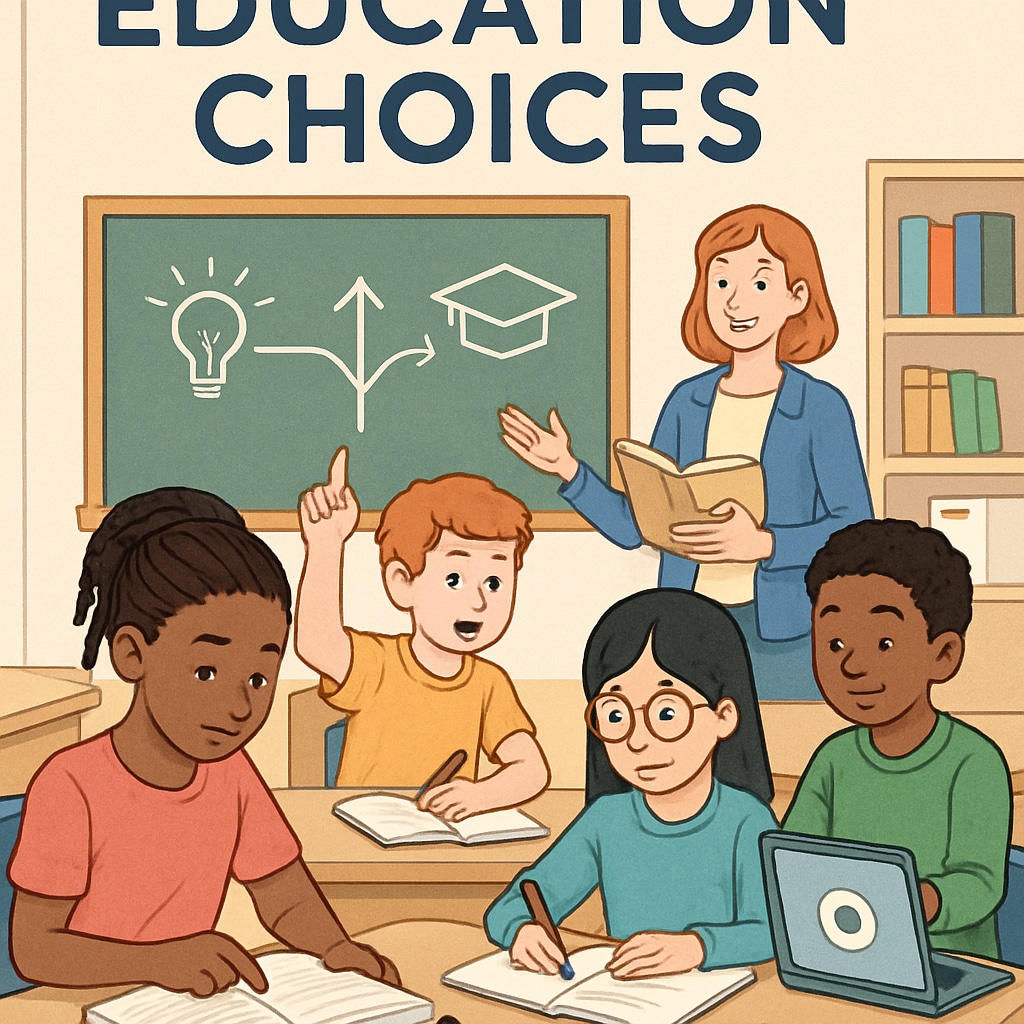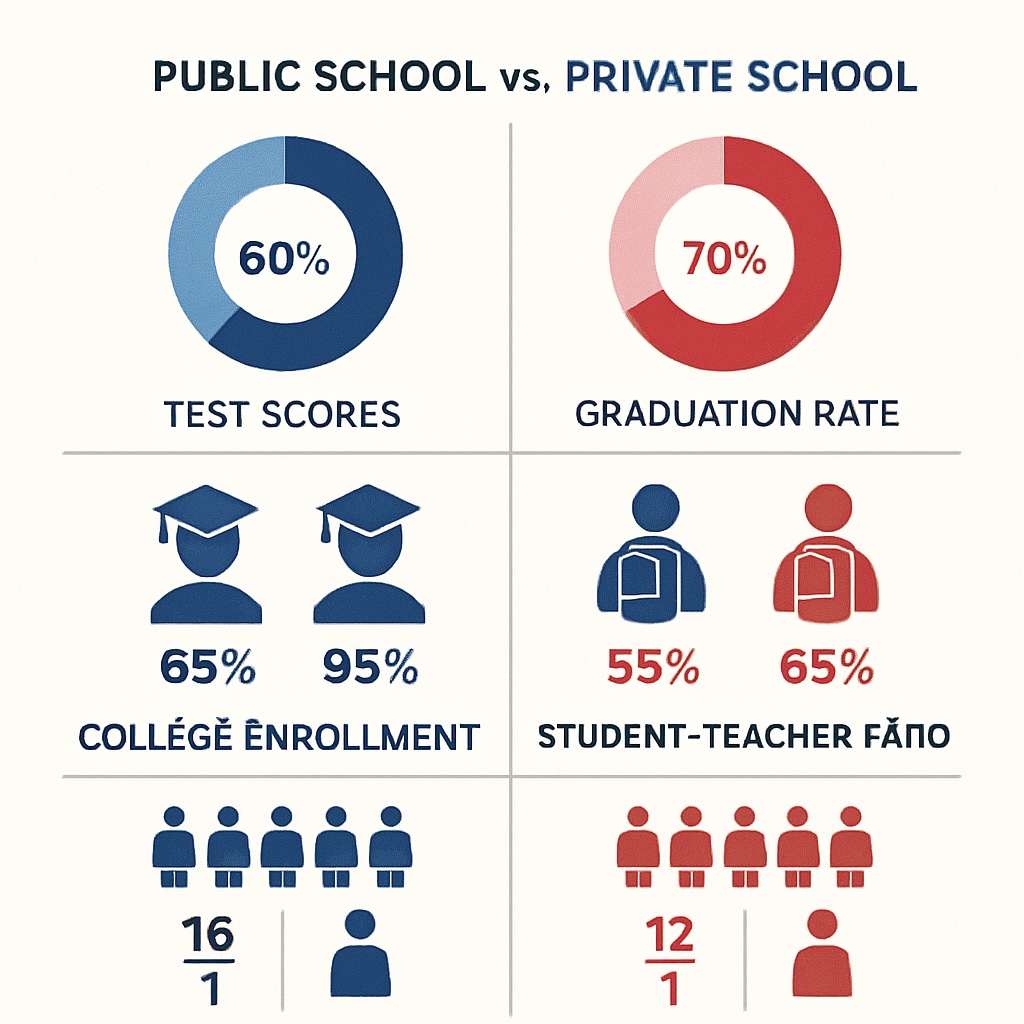Families residing in high-ranking school districts often face a puzzling question: should they enroll their children in well-resourced public schools or invest in expensive private education? With “school district rankings,” “public schools,” “private schools,” and “education choices” weighing heavily on parents’ minds, the debate centers on whether private education offers a significant return on investment, especially when public schools already provide high-quality education. This article examines the underlying factors driving this decision and evaluates the cost-value balance of private schooling in such contexts.
Why Do Families Choose Private Education in Top Public School Districts?
Public schools in high-ranking districts boast excellent academic performance, modern facilities, and diverse extracurricular activities. These schools often achieve high scores on standardized tests and receive favorable reviews from parents and educational experts alike. Yet, despite these advantages, many families still choose to pay tens of thousands of dollars annually for private education. Why?
Several reasons emerge:
- Individualized Attention: Private schools often have smaller class sizes, enabling teachers to provide personalized instruction tailored to each student’s needs.
- Specialized Programs: Many private schools offer unique curricula, such as advanced arts programs, International Baccalaureate (IB) courses, or religious education unavailable in public schools.
- Perceived Prestige: Private schools are frequently associated with exclusivity and higher social standing, which can influence parents’ choices.
- College Preparation: Families may believe private schools have better college counseling services and stronger networks with prestigious universities.
However, these advantages come with significant financial strain, leading to the question of whether the benefits outweigh the costs.

Comparing Academic Outcomes: Public vs. Private Schools
One of the most debated aspects of this decision is academic performance. Public schools in high-ranking districts are known for their rigorous curricula and strong student outcomes, often rivaling, if not surpassing, those of private institutions. For example, many public schools offer Advanced Placement (AP) programs that allow students to earn college credits, a feature also available in private schools.
According to data from the National Center for Education Statistics, the average test scores of students in top public schools often match or exceed those of private school students. Moreover, public schools give students access to diverse peer groups, fostering inclusivity and real-world social skills. On the other hand, private schools frequently highlight their smaller student-teacher ratios and specialized resources as key differentiators.
Ultimately, the academic differences between these two options may be less pronounced than commonly believed, especially in high-performing public school districts.

Beyond Academics: What Else Matters?
While academic outcomes are critical, many parents consider additional factors when deciding between public and private education:
- Extracurricular Opportunities: Public schools in affluent areas often provide expansive sports, arts, and science programs comparable to those of private schools.
- Community and Diversity: Public schools tend to reflect the socioeconomic and cultural diversity of their neighborhoods, offering students a broader perspective on society.
- Financial Flexibility: Opting for public education allows families to allocate resources toward other enrichment opportunities, such as summer programs or private tutoring.
Parents must weigh these factors against private schools’ advantages, such as exclusive extracurriculars or heightened security measures. The choice ultimately depends on family priorities, values, and financial capacity.
Is Private Education Worth the Price Tag?
The decision to choose private education over public schooling in a high-ranking school district boils down to perceived value. While private schools often promise a more tailored and prestigious experience, public schools in top districts already deliver high-quality education at a fraction of the cost. For many families, the additional expense of private school may be better spent on supplementary educational resources or long-term savings.
However, for parents prioritizing specific features, such as religious instruction or elite college preparation, private education may indeed justify the investment. Ultimately, the “right” choice depends on the individual needs of the student and the family’s long-term goals.
As education costs continue to rise, families must critically evaluate whether private schooling offers unique benefits that cannot be matched by high-performing public schools. By carefully considering academic outcomes, extracurricular opportunities, and financial realities, parents can make informed decisions that align with their values and aspirations.
Readability guidance: This article uses concise paragraphs, clear headings, and bullet points to ensure readability. Transition words are included to maintain a smooth flow, and technical terms are explained for accessibility.


